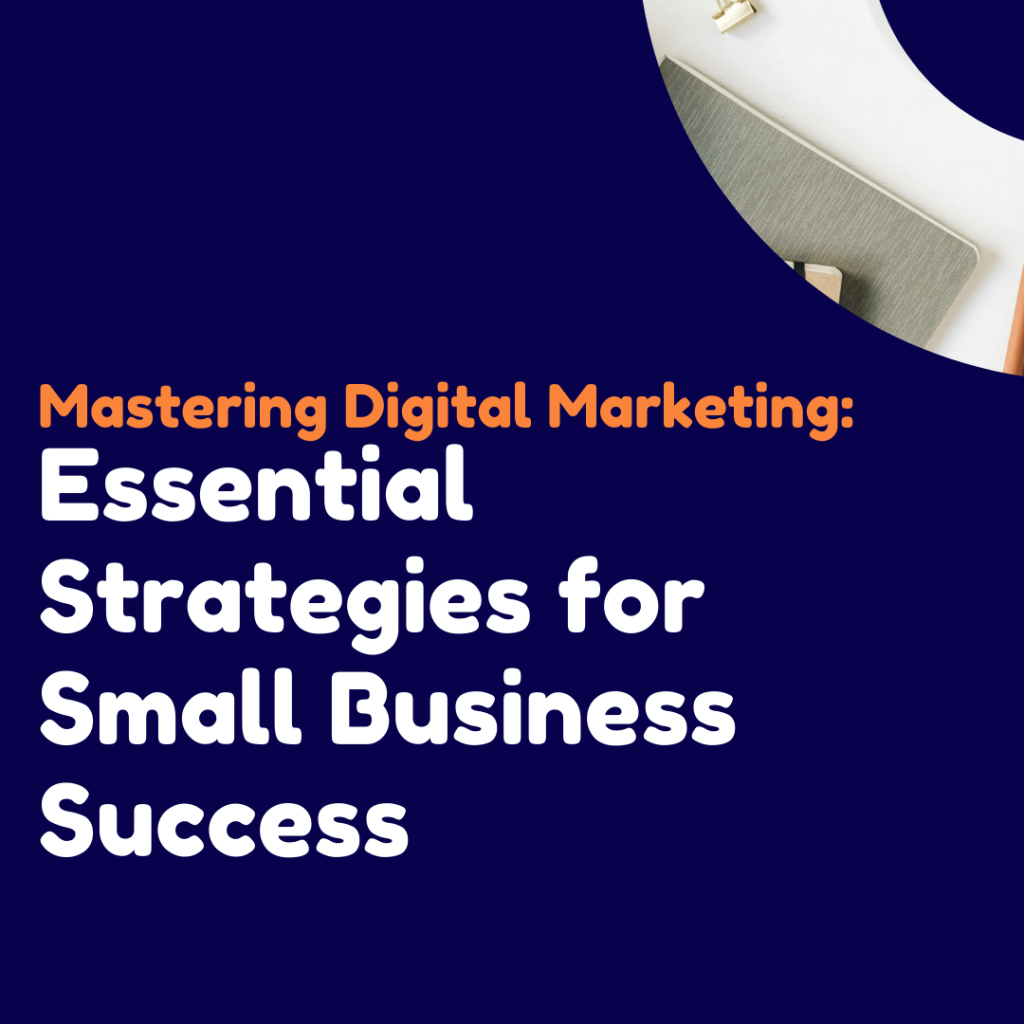Mastering Digital Marketing: Essential Strategies for Small Business Success

In today’s digital landscape, effective marketing is crucial for small businesses to thrive. However, many entrepreneurs find themselves overwhelmed by the complexities of digital marketing. This article will explore essential digital marketing strategies that can help small businesses succeed in the online marketplace, providing practical tips and insights to boost your digital presence.
Table of Contents:
- The Digital Marketing Landscape for Small Businesses
- Content Marketing: Engaging Your Audience
- Search Engine Optimisation: Climbing the Rankings
- Social Media Strategies for Business Growth
- Email Marketing: Nurturing Customer Relationships
- Data-Driven Decision Making with Analytics
- Mobile Optimisation: Reaching Customers on the Go
- The Power of AI in Modern Marketing
- Integrating Your Digital Marketing Efforts
- The Digital Marketing Landscape for Small Businesses
The digital world offers unprecedented opportunities for small businesses to reach new audiences and compete with larger corporations. However, it also presents unique challenges. Understanding the digital marketing landscape is the first step towards success.
Key components of digital marketing include:
- Content marketing
- Search engine optimisation (SEO)
- Social media marketing
- Email marketing
- Pay-per-click advertising (PPC)
- Analytics and data analysis
For small businesses with limited resources, it’s crucial to focus on strategies that offer the best return on investment. Tools like MarketMe can help streamline these efforts, but understanding the fundamentals is essential.
- Content Marketing: Engaging Your Audience
Content is king in the digital world. High-quality, relevant content helps attract and retain customers, establishing your brand as an authority in your field.
Tips for effective content marketing:
- Understand your target audience
- Create a content calendar
- Diversify your content types (blog posts, videos, infographics)
- Focus on providing value, not just selling
- Optimise content for SEO
- Repurpose content across different platforms
Remember, consistency is key. Regular, valuable content keeps your audience engaged and coming back for more.
- Search Engine Optimisation: Climbing the Rankings
SEO is crucial for increasing your visibility in search engine results. While it can seem complex, understanding the basics can significantly improve your online presence.
Key SEO strategies:
- Keyword research and implementation
- On-page optimisation (meta titles, descriptions, headers)
- Technical SEO (site speed, mobile-friendliness, site structure)
- Link building
- Local SEO for brick-and-mortar businesses
Tools like Google Analytics and Google Search Console can provide valuable insights into your SEO performance. Many all-in-one marketing platforms, such as MarketMe, also offer SEO tools to simplify the process.
- Social Media Strategies for Business Growth
Social media platforms offer powerful ways to connect with your audience, build brand awareness, and drive traffic to your website.
Effective social media strategies include:
- Choosing the right platforms for your business
- Creating a consistent brand voice
- Engaging with your followers regularly
- Using visual content (images, videos, stories)
- Leveraging user-generated content
- Analysing performance metrics to refine your strategy
Remember, quality trumps quantity. It’s better to maintain a strong presence on one or two platforms than to spread yourself thin across many.
- Email Marketing: Nurturing Customer Relationships
Email remains one of the most effective digital marketing channels, offering a direct line of communication with your customers.
Best practices for email marketing:
- Build your email list organically
- Segment your audience for targeted messaging
- Craft compelling subject lines
- Personalise your emails
- Provide value, not just promotional content
- Test and optimise your emails (A/B testing)
- Ensure mobile-friendly design
With the right approach, email marketing can significantly boost customer retention and drive sales.
- Data-Driven Decision Making with Analytics
In the digital age, data is a powerful asset. Analytics tools provide insights into your marketing performance, allowing you to make informed decisions and optimise your strategies.
Key metrics to track:
- Website traffic and sources
- Conversion rates
- Engagement rates (likes, shares, comments)
- Email open and click-through rates
- Customer acquisition cost
- Return on investment (ROI)
Tools like Google Analytics offer comprehensive data, while platforms like MarketMe can provide user-friendly dashboards for easy analysis.
- Mobile Optimisation: Reaching Customers on the Go
With the majority of web traffic now coming from mobile devices, mobile optimisation is no longer optional.
Mobile optimisation strategies:
- Responsive website design
- Fast loading times
- Easy navigation on small screens
- Click-to-call buttons for easy contact
- Mobile-friendly content (short paragraphs, bullet points)
- Mobile-optimised email templates
Remember, Google uses mobile-first indexing, meaning the mobile version of your site is prioritised for ranking purposes.
- The Power of AI in Modern Marketing
Artificial Intelligence is revolutionising digital marketing, offering powerful tools for personalisation, automation, and data analysis.
AI applications in marketing:
- Chatbots for customer service
- Predictive analytics for customer behaviour
- Content creation and curation
- Ad targeting and optimisation
- Email marketing personalisation
While AI tools were once the domain of large corporations, platforms like MarketMe are making AI-powered marketing accessible to small businesses.
- Integrating Your Digital Marketing Efforts
For maximum impact, it’s crucial to integrate your various digital marketing efforts. A cohesive strategy ensures consistent messaging across all channels and allows you to leverage the strengths of each platform.
Integration strategies:
- Use consistent branding across all channels
- Cross-promote content on different platforms
- Use data from one channel to inform strategies on others
- Create a seamless customer journey across touch points
- Utilise marketing automation for consistent communication
All-in-one marketing platforms can be valuable for small businesses, offering integrated tools for various aspects of digital marketing.
Conclusion:
Mastering digital marketing is an ongoing process, but with the right strategies and tools, small businesses can achieve significant growth and success online. By focusing on creating valuable content, optimising for search engines, engaging on social media, leveraging email marketing, and making data-driven decisions, you can build a strong digital presence that drives business results.
Remember, the digital landscape is always evolving, so stay informed about new trends and technologies. Whether you’re managing your digital marketing in-house or using tools like MarketMe to streamline your efforts, continuous learning and adaptation are key to long-term success in the digital world.
Resources

Mastering Digital Marketing: Essential Strategies for Small Business Success
Explore key digital marketing strategies for small businesses. Learn about content creation, SEO, social media, and data-driven decision-making to boost your online presence.
Built for small business.
Sophie Turner
This platform has completely transformed our online marketing strategy. The results speak for themselves!
Liam Johnson
Incredible tool! It’s streamlined our marketing efforts and significantly increased our reach.
Ava Patel
The customer support is outstanding. They truly understand our needs and help us achieve our marketing goals.
Ethan Yong
I was amazed at how quickly we saw results. This platform is a game-changer for small businesses.





